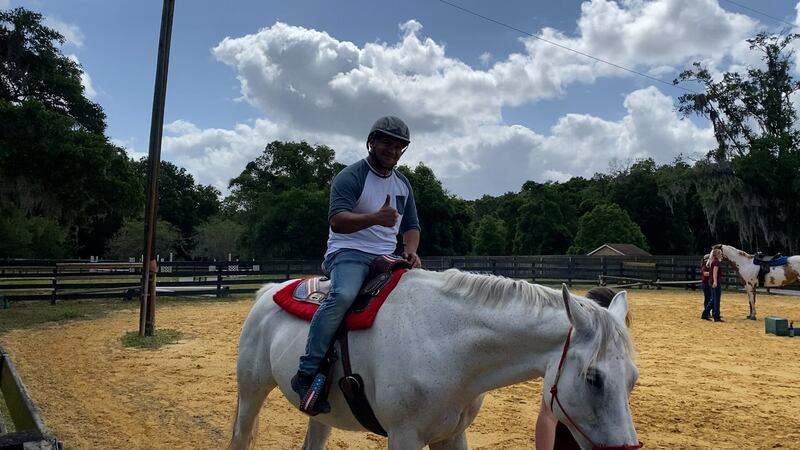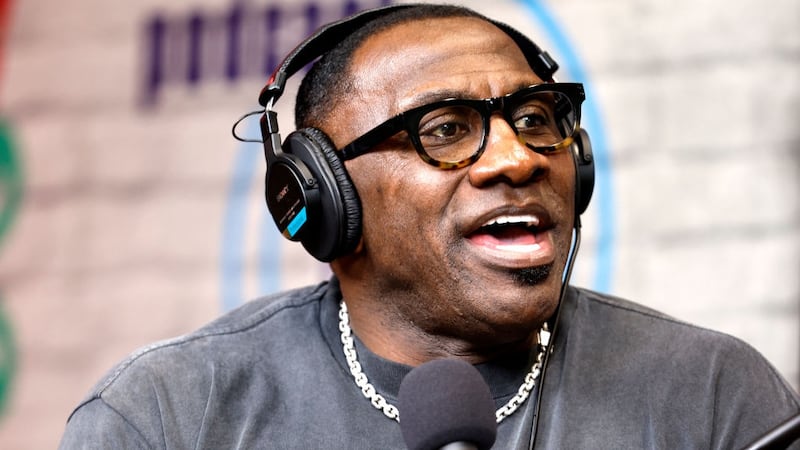ORLANDO, Fla. — There are 1.5 million veterans in Florida, and they’re dying and landing in the criminal justice system at an alarming rate.
Many are not getting the mental health treatment that they need, so 9 Investigates sat down with top doctors at the Orlando VA and veterans to get a handle on the issue affecting so many people in this community.
>>> STREAM CHANNEL 9 EYEWITNESS NEWS LIVE <<<
Matthew Mattix returned from Afghanistan in 2006, living what he considered a normal life until about three years ago.
“All of (the) sudden, I was having these horrible nightmares. I’d literally wake my (ex-girlfriend) up, kicking and punching in bed, rolling over all over the place,” Mattix said. “It was just horrific, and I was like, ‘Am I losing my mind?’ because I’d been out of the service for 10 years at that point, so I didn’t understand what was going on. When it hits you, it’s bad.”
Post-traumatic stress disorder triggers forced him to relive scenes from the war.
“You can have someone -- a lady in her house -- washing the dishes,” Mattix said. “She’s walked over that area a million times before and all of (the) sudden, a landmine blows up. And they come in, literally in pieces, and it’s devastating.”
Read: VA pushing to recruit, train more healthcare providers to specialize in women’s needs
PTSD is a disorder that develops in some people who have experienced a shocking, scary or dangerous event, according to the National Institute of Mental Health.
It is natural to feel afraid during and after a traumatic situation. Fear triggers many split-second changes in the body to help defend it against danger or to avoid it.
This “fight-or-flight” response is a typical reaction meant to protect a person from harm, according to the Institute.
Everything is a heavy lift during rounds of rehab for Steffan Haskins, a U.S. Army veteran.
The sessions are required not because of his service, but because of an encounter with law enforcement as a result of his PTSD, triggered from a grenade attack, he believes.
“I remember my gun truck commander asking, ‘Are you OK? Are you okay? And I’m like, everything was just ringing,” Haskins said, describing the night he was shot by Orlando police.
Read: Thousands of smartphones purchased by VA went unused
Matthew coped with alcohol -- until he crashed his car while drunkenly driving with his teenage daughter.
He had already been through treatment at the veterans domiciliary twice.
“My biggest thing was it’s not just the alcoholism,” Mattix said. “I‘ve got to figure out my PTSD.”
Orlando police didn’t know Steffan was reliving that grenade attack when fireworks woke him up on New Year’s Eve. He went into combat mode, running through his neighborhood with his gun and dog in hand.
His neighbors heard what they described as a man fighting with himself inside of Haskins apartment.
They called 911, and when officers caught up to him, they thought he was trying to carjack a man in his vehicle in a nearby parking lot.
They said they saw his gun, demanded that he drop it and when he didn’t, they opened fire.
Read: ‘I feel blessed’: Brevard veteran lives homeownership dream thanks to Habitat for Humanity
“I got shot through the top of my head. I got shot through the bottom of my mouth. That bullet bounced around, I swallowed it,” Haskins said while showing the location each bullet pierced his body.
The Orlando VA has seen a steady increase in veterans receiving at least one mental health service. There are currently 50,000 veterans under their care.
The alternative for many could be prison or suicide.
A VA report found more than 100,000 veterans are serving time, some likely from criminal behavior linked to untreated mental illness.
Dr. Gustavo Rivera-Cruz said 11 of 17 veterans who commit suicide each day aren’t enrolled in care available through the VA.
“There is a culture of resistance of feeling like if you get help, it’s a sign of weakness,” said Rivera-Cruz, who is also a veteran.
Jason White is with the Birdwell Foundation, which helped convince a judge to release Steffan from jail to get treatment at the VA in Lake Nona while he awaits trial.
Read: Mental Health Awareness Month: How you can help
He believes the VA needs more resources to reduce its wait times for appointments involving new patients not in crisis, which can range from days up to four weeks, depending on the location.
“That leads to the gap of the veterans going through a timespan with no treatment,” White said.
Rivera-Cruz said the VA has a robust outreach program that aims to provide help for those who need it.
He has Matthew and Steffan as proof, one of whom is now pleading with a judge for mercy as he goes through rehab for his injuries and group therapy.
“The person that was in Iraq was there that night, and he was seeking safety,” Haskins said.
Last Month, the VA said it will award nearly $52 million in grants for suicide prevention programs in the coming months to community groups in an effort to provide more targeted help for individuals in distress and better outreach to veterans outside the VA health care system.
Steffan’s trial is scheduled for later this year, and he could face 25 years in prison.
Click here to download the free WFTV news and weather apps, click here to download the WFTV Now app for your smart TV and click here to stream Channel 9 Eyewitness News live.
©2022 Cox Media Group








